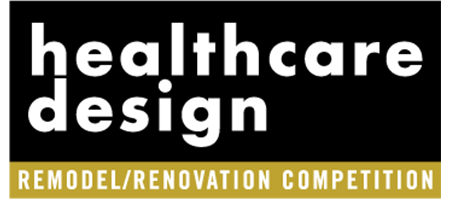I was at a healthcare conference recently, chatting with a client, when we happened to overhear another general contractor bragging about how his company just returned over $3 million to an owner upon completion of a major hospital replacement project. My client remarked that if it were his facility, he would rather have been given the option to use the cost savings to add scope or upgrade a major system. For him, there was greater value in being able to enhance his current project.
This got me thinking about what IS value, and better yet, who defines it? Is it the owner, who may have a different objective than what the contractor thinks, if given a choice, or other members of the project team? And do these views on value coincide, or collide?
Oftentimes in business, those delivering a product or service and those paying for it have differing and sometimes competing perspectives on how each can achieve the best value for the dollar. Perhaps nowhere can you find that more evident than in the current highly competitive construction marketplace, where owners are rightfully looking for the highest return for their capital investment.
Many owners today still feel that the best way to maximize value and control cost is to hard bid a project. For some of the low-bid contractors and subcontractors who are brought on board, the emphasis is on performing to the letter of the sometimes incomplete contract, and no more.
This traditional delivery approach often leads to a confrontational environment in which companies who submitted the low bid may not have the experience or know-how to effectively deliver in a complex marketplace like healthcare. Change orders, RFIs, and disputes may trump true communication and problem solving, often resulting in delays and cost overruns.
Clearly there is a different way. For contractors, who prefer to operate within a much more collaborative framework, value on a project can be a goal that is not only defined but collectively shared by the entire team.
Take for example the movement on healthcare projects to develop an ever more detailed BIM model to avoid conflicts and clashes in the field. Just within the last couple of years, DPR discovered the value of modeling drywall using virtual mockups to enable the testing of design and ideas prior to creation of more expensive live mockups.
On one large-scale medical center now underway in the Bay Area, this use of virtual mockups resulted in design revisions that added direct value into the project.
“To produce the right product at the right time in the right quantity for the customer and to produce exactly what you need and nothing more…” was the goal of the Toyota Production System, according to its creator, Taiichi Ohno. This philosophy, which serves as the foundation of the Lean delivery approach for construction processes, is one key component of an integrated project delivery (IPD) approach.
Through a true IPD approach, value as defined by the collaborative project team—usually encompassing quality, schedule, and cost objectives—is not only possible, but, in fact, a likely outcome. We must first break down the silos of traditional procurement methodologies, however, and learn to collaborate and to trust one another.
Over the next few months, I’ll be exploring a variety of topics illustrating the value that integration and collaboration bring to healthcare construction, as well as how to enhance value and project results through a higher level of BIM and Lean processes, among various other topics.
Stay tuned!
Hamilton Espinosa, LEED AP, leads the National Healthcare Group for DPR Construction, a forward-thinking national general contractor and construction manager that specializes in technically complex and sustainable projects for the healthcare, advanced technology, life sciences, higher education and corporate office markets. Instrumental in building more than $3 billion worth of healthcare projects, including Banner MD Anderson Cancer Center, Espinosa offers more than 23 years of construction industry experience. For more information about DPR Construction, visit www.dpr.com.
DPR Construction
222 North 44th Street | Phoenix, Arizona | 85034
602 808 0500 telephone | 602 808 8843 facsimile
www.dpr.com
[email protected]











